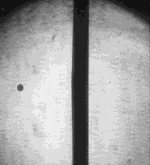
Photo from wikipedia
Abstract Considering that freeze–thaw (FT) damage has a serious degradation effect on the performance of concrete materials in cold regions and constraint is a common boundary condition for concrete structures,… Click to show full abstract
Abstract Considering that freeze–thaw (FT) damage has a serious degradation effect on the performance of concrete materials in cold regions and constraint is a common boundary condition for concrete structures, the main mechanical behaviors of self-compacting concrete subjected to 0, 50, 100, 150, 200 and 250 FT cycles under different confining pressures (0, 2.5, 5 and 10 MPa) are studied through a series of triaxial compression tests. The results show that the macroscopic fracture of concrete under triaxial loads gradually propagates towards the direction of axial compression with the increase of FT cycles, and it changes from one fracture to multiple fractures; the peak deviator stress, elastic modulus, and strain corresponding to peak deviator stress increase with the increase of confining pressure. In addition, with the increase of FT cycles, the FT damage weakens the peak deviator stress and lateral deformation capacity of concrete, resulting in its sensitivity to confining pressure gradually increases, and the cohesion cn and internal friction angle φn decrease exponentially. Finally, based on the experimental research, the influence indexes of FT damage are introduced into the mesoscopic parameters, and a discrete element model considering the real aggregate shape is established to predict the triaxial mechanical behavior of self-compacting concrete subjected to different FT cycles under different confining pressures.
Journal Title: Construction and Building Materials
Year Published: 2021
Link to full text (if available)
Share on Social Media: Sign Up to like & get
recommendations!